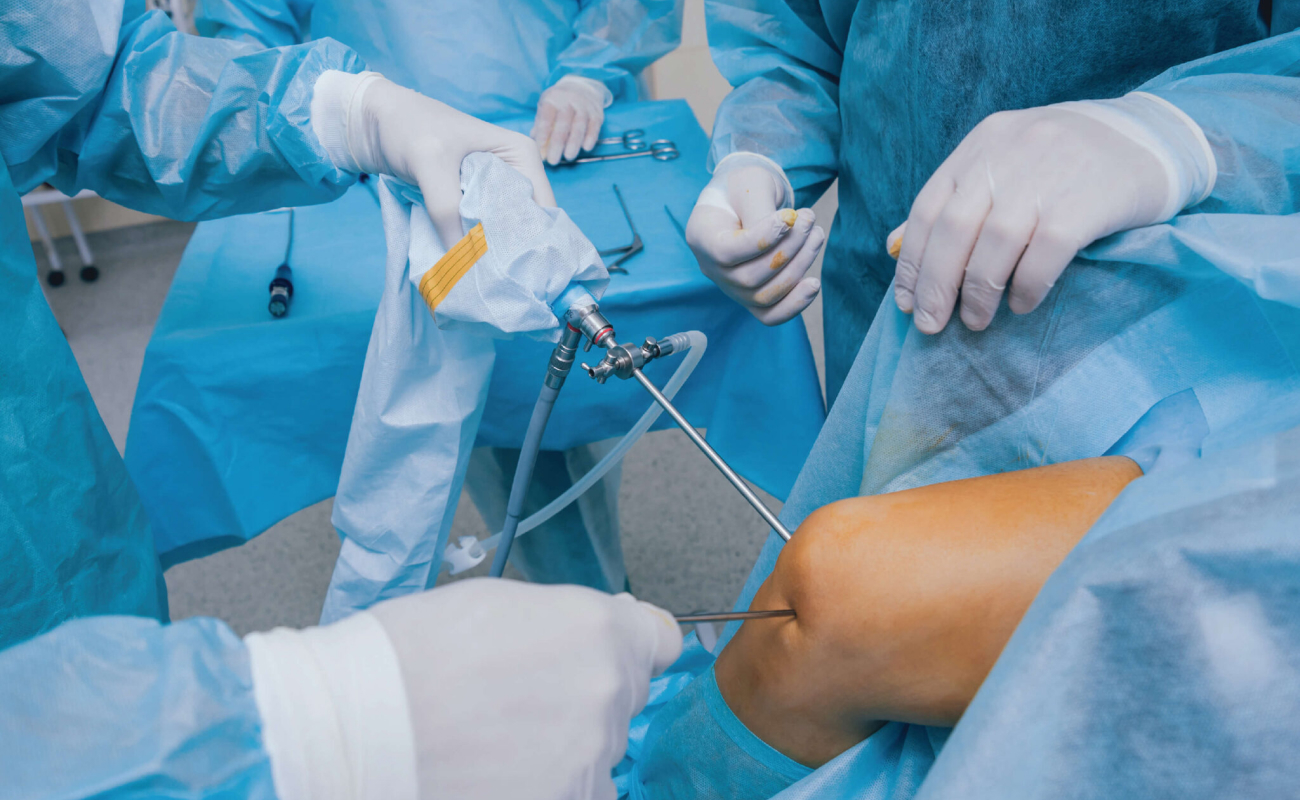The Benefits of Choosing an Arthroscopic Surgeon for Your Joint Health Needs

Author :
Category :
Published Date : August 08, 2024
Table of Contents
Arthroscopy is a minimally invasive surgical procedure used to diagnose and treat joint problems. For individuals experiencing joint pain or injury, selecting an arthroscopic surgeon can offer numerous benefits. Understanding the advantages of arthroscopic surgery and how it can enhance joint health in a more efficient manner can help in considering this surgery as the primary option.
What is Arthroscopic Surgery?
Arthroscopic surgery involves the use of a specialised instrument called an arthroscope, which is a small camera inserted into the joint through a tiny incision. This allows the surgeon to view the inside of the joint on a screen and perform precise surgical procedures with minimal disruption to the surrounding tissues.
Common Conditions Treated with Arthroscopy
Arthroscopy is commonly used to treat various joint conditions, including:
-
Torn Cartilage (Meniscus)
Arthroscopy is often used to repair or remove torn cartilage in the knee, providing relief from pain and improving joint function.
-
Ligament Injuries
Injuries to ligaments, such as the anterior cruciate ligament (ACL) in the knee, can be effectively treated with arthroscopic surgery.
-
Joint Inflammation
Conditions such as synovitis, where the lining of the joint becomes inflamed, can be treated arthroscopically by removing the inflamed tissue.
-
Shoulder Impingement
Arthroscopy can be used to treat shoulder impingement by removing bone spurs or inflamed tissue causing pain and restricted movement.
Benefits of Arthroscopic Surgery
-
Minimally Invasive Approach
Arthroscopic surgery involves smaller incisions compared to traditional open surgery, resulting in less trauma to the surrounding tissues. This minimally invasive approach leads to reduced pain, scarring, and recovery time.
-
Precision and Accuracy
The use of an arthroscope allows surgeons to view the joint in high detail, enabling precise diagnosis and treatment. This precision enhances the success rate of the surgery and reduces the likelihood of complications.
-
Faster Recovery
Patients undergoing arthroscopic surgery typically experience quicker recovery times. The smaller incisions and reduced tissue damage mean that patients can return to their normal activities sooner.
-
Lower Risk of Infection
The minimally invasive nature of arthroscopic surgery reduces the risk of infection. Smaller incisions mean less exposure to bacteria, lowering the chances of postoperative infections.
Preparing for Arthroscopic Surgery
Preparation for arthroscopic surgery involves several key steps:
-
Medical Evaluation
A thorough medical evaluation, including imaging studies such as MRI or X-rays, is necessary to determine the extent of the joint problem and plan the surgical approach.
-
Preoperative Instructions
Patients are provided with specific preoperative instructions, including fasting before surgery and adjusting medications if necessary.
The Arthroscopic Surgical Procedure
The procedure typically takes about 30 minutes to 2 hours, depending on the complexity of the condition being treated. The surgeon makes small incisions around the joint and inserts the arthroscope to visualise the joint interior. Specialised instruments are then used to perform the necessary repairs or remove damaged tissue.
Postoperative Care and Recovery
Recovery from arthroscopic surgery involves several stages:
-
Immediate Postoperative Period
Patients are usually discharged on the same day as the surgery. Pain management, wound care, and early mobilisation are key focuses during this period.
-
First Few Weeks
Physical therapy begins shortly after surgery to restore joint function and improve range of motion. The goal is to regain strength and mobility.
-
Long-term Recovery
Full recovery can take several weeks to a few months, depending on the extent of the surgery and the patient’s overall health. Adhering to a structured rehabilitation program is crucial for optimal outcomes.
Choosing an Arthroscopic Surgeon
Selecting the right surgeon is critical for the success of arthroscopic surgery. Here are some key considerations:
-
Experience and Expertise
Look for a surgeon with extensive experience in performing arthroscopic surgeries. Higher certifications and specialised training in orthopaedics are indicators of expertise.
-
Reputation and Reviews
Research the surgeon’s reputation through patient reviews, testimonials, and professional ratings. Positive feedback from previous patients can provide insight into the surgeon’s skill and patient care.
-
Hospital Affiliation
Consider the hospital where the surgeon practices. Renowned hospitals having advanced facilities and a dedicated orthopaedic unit are preferable for arthroscopic surgery.
Get Joints Treated with Minimal Invasion
Arthroscopic surgery offers numerous benefits for individuals with joint problems, providing a minimally invasive option with faster recovery times and lower risks of complications. Dr Kunal Patel, a renowned orthopaedic surgeon, specialises in arthroscopic surgery. With years of experience, an approach of ensuring commitment to patient-centred care, staying in sync with the latest surgical techniques and focusing on personalised treatment plans to ensure optimal outcomes for his patients, significant improvements can be easily expected by patients under Dr Kunal Patel’s care.
